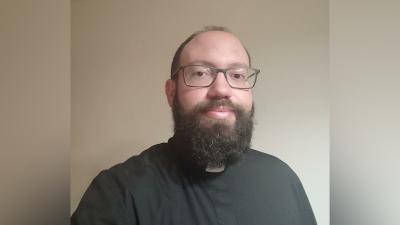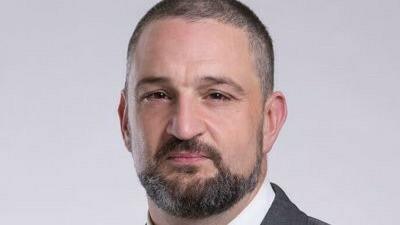Socialism has the peculiarity that it impoverishes the countries in which it governs, but makes those who govern rich. In Portugal, after a year of corruption scandals involving ministers and senior members of the Socialist Party, it has finally been the turn of Prime Minister António Costa.
On Tuesday 7 November, Costa announced his resignation after envelopes containing more than 75,000 euros in cash were found in the office of Vítor Escária, his chief of staff, in the prime minister’s official residence. In addition, it was also made public that the former socialist prime minister is being investigated by the Supreme Court, after his name was pointed out as an intervener by several investigated parties in a case related to lithium, green hydrogen and a data centre in Sines. The prosecution considers that Costa intervened in favour of the interests of the company Start Campus, responsible for the data centre, and that he could have committed a crime of prevarication, active and passive corruption of political officials and influence peddling.
The whole thing erupted following the arrest of the prime minister's chief of staff, Vítor Escária, the mayor of Sines, Nuno Mascarenhas, two directors of the company Start Campus and a consultant, in an investigation by the Central Directorate of Investigation and Criminal Action (DCIAP) into the lithium and green hydrogen business. The investigation has also targeted the Minister of Infrastructure, João Galamba, and the president of the Board of Directors of the Portuguese Environment Agency, Nuno Lacasta. The detainees were imprisoned because the prosecutor’s office considers that there is a “danger of flight, continuation of the criminal activity, disruption of the investigation and disturbance of public order and tranquillity”. The discovery of the 75,000 euros was the straw that broke the camel’s back.
“I must tell the Portuguese people that the fact that the envelopes were found here shames me and I must apologise,” said Costa, who has denied having committed “any illegal or reprehensible act”, but has resigned because the office of prime minister is not compatible with the “suspicion of the practice of any criminal act”. He also stated that “I will probably never hold public office again”.
António Costa’s resignation is a real blow to the Portuguese Left and the end of its most important figure. Known as the Socialist of the “imposible” for having managed to turn around an electoral defeat with an unprecedented left-wing pact and achieve an absolute majority when no one expected it, Costa would have become the longest-serving head of government in Portuguese democracy if he had finished his term in office in 2026. It is also bad news for Pedro Sánchez, who had one of his greatest allies in António Costa, and for Brazil’s President Lula da Silva, who expressed his concern over “Costa’s resignation and the advance of the far right”. It is clear that Lula is surprised that, given the experience in his country, corruption is capable of bringing down a government and taking Portuguese socialism with it.
New elections
Following the resignation of António Costa, the President of the Republic, Marcelo Rebelo de Sousa, announced that early legislative elections would be held on 10 March 2024. The early elections catch the left out of the game, and the socialists have just a few months to reorganise themselves and choose a candidate who is not linked to the corruption cases. In the latest poll published on 10 November, the Socialist Party obtained 22%, dropping to second place, while the Popular PSD took first place with 27%. Chega remains the third force, but with a strong rise to 16.1% (in the January 2022 elections, André Ventura’s party got 7.15%). With this result, a right-wing coalition would win the next elections.
For Ricardo Regalla Dias Pinto, André Ventura’s chief of staff and Chega’s director of international relations, the elections come at a very good time for his party: “Chega is growing and more and more Portuguese are supporting us, so we are ready for the next elections and to dislodge the socialists from power”. A good example of this steady growth can be found in the recent elections held in September on the island of Madeira, where Chega has gone from 619 votes in 2019 to 12,028, becoming the fourth political force and gaining four MPs. “Calling elections was the right decision, because Portugal could not afford a government and a party tainted by corruption,” said Dias Pinto. Indeed, corruption has been one of Chega’s campaign planks, and his billboards denounce the fact that Portuguese people pay such high taxes to support corruption.
As for what might happen after 10 March, Dias Pinto pointed out that “a right-wing government can only succeed with Chega”, in response to the doubts expressed by some PSD leaders who seem reluctant to count on André Ventura’s party. The Portuguese Popular Party should look at what has happened in Spain, where the reluctance of the Popular Party of Alberto Núñez Feijóo and its campaign of harassment and demolition of its only possible ally, VOX, have led us to the terrible situation in which we find ourselves right now. Let us hope that political sights will be raised in Portugal above party interests and that the Portuguese pay the corrupt with the only currency they deserve, the loss of power.
Read also
Father Góngora: “If we absent ourselves from public spheres, we are negligently conceding ground to the enemy to spread his lies”
The Sacristy of the Vendée is a means to a clear objective: to propose the worldview of the Catholic tradition in times of moral relativism and ethical circumstantialism.
Álvaro Peñas
Selling the bear’s skin before it’s hunted
Two weeks ago, Alberto Núñez Feijóo saw himself as President and clear winner of the general elections in Spain.
Álvaro Peñas
Hugo Zunzarren: “In hybrid warfare, the battlefield is people’s minds”
Attacking companies that are critical to a country undermines confidence in politics and the economy and creates more insecurity. This is all part of a hybrid war environment, not just against companies or against states, but as part of a whole.












Comments (0)